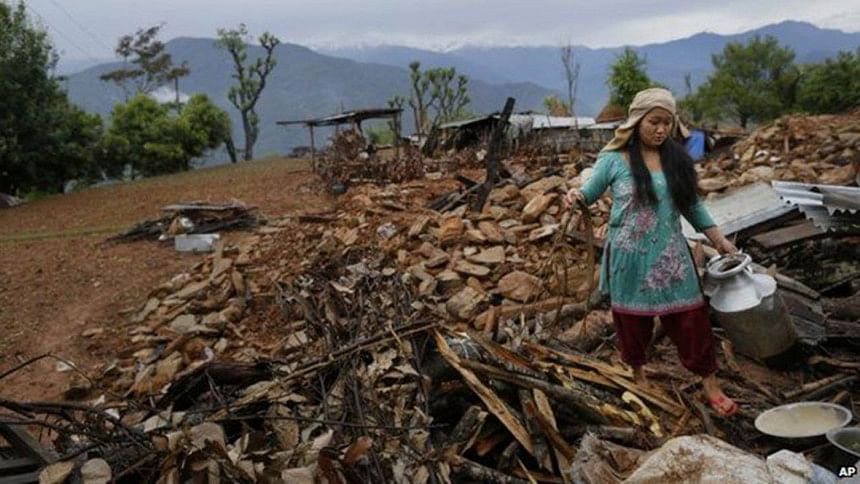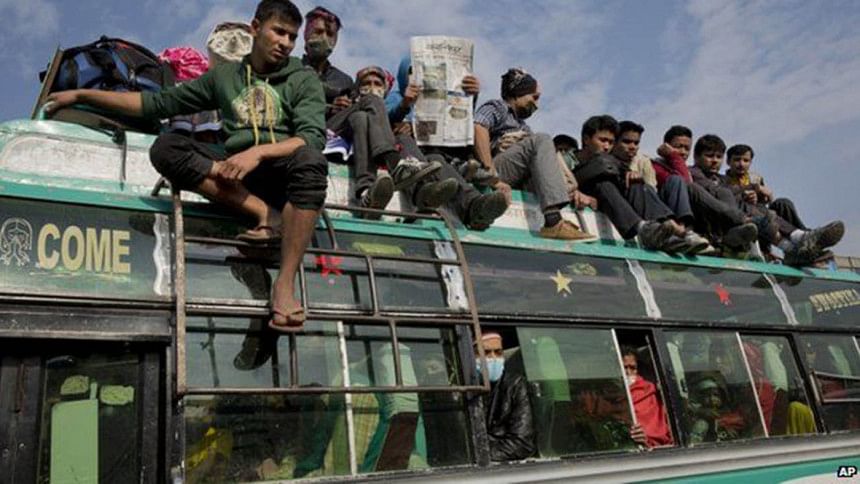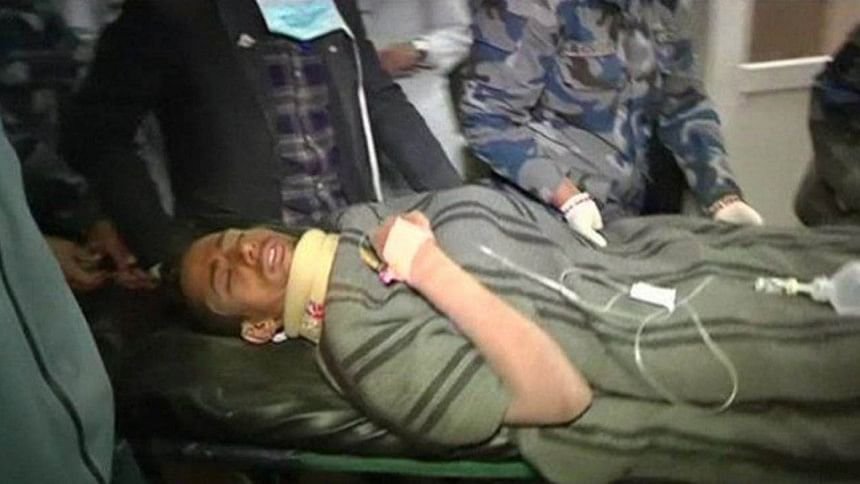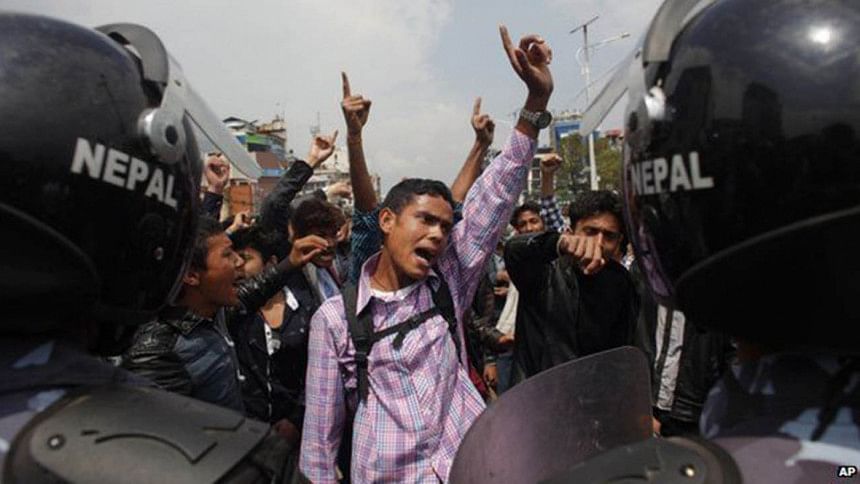Nepal earthquake: Relief starts reaching remote villages

Aid has begun to reach remote regions near the epicentre of Saturday's devastating earthquake in Nepal.
As relief efforts continue in the Kathmandu Valley, the UN says the response is broadening to include areas such as Dhading and Gorkha.
The 7.8-magnitude quake killed more than 5,000 people. Many survivors are in desperate need of food and water.
Thousands of people are queuing to board buses and leave the capital, amid fears of further aftershocks.
The government is providing free transport for Kathmandu residents. School buses have been sent to supplement overstretched services.
"We are scared of the epidemics that may spread because of all those dead bodies," a man waiting at the main bus station told the BBC. "Just to be safe, I'm leaving town for a while."

Early on Wednesday police at the station scuffled with people trying to get on to crowded buses.
More than eight million people have been affected by the quake, the UN says. About 10,000 people have been injured.
Hundreds of thousands of people continue to live in temporary camps, in squalid conditions with very little food and water, says the BBC's Sanjoy Majumder in Kathmandu.
Anger and frustration have been mounting, with many people sleeping out in the open for a fourth night.

Officials have acknowledged that they have been overwhelmed by the scale of the disaster and that delivering relief to far-flung villages has been challenging.
"The terrain is such that very remote areas take a very long time to reach," said army spokesman Jagdish Chandra Pokherel. "Our troops are trying their best."
Renaud Meyer of the UN Development Programme told the BBC that Kathmandu's single-runway airport was struggling to accommodate the rush of aid flights, but teams were delivering supplies as quickly as possible.
"We're trying to skip the usually fairly long moments of assessment to go straight to the delivery of assistance," he said.

Rescue teams have so far been able to save 14 people from rubble. On Tuesday a 28-year-old man, Rishi Khanal, was pulled from a collapsed building in Kathmandu where he had spent three days trapped in a room.
On Mount Everest - where the quake triggered an avalanche that killed at least 18 people - all stranded climbers have now been evacuated from base camp.

 For all latest news, follow The Daily Star's Google News channel.
For all latest news, follow The Daily Star's Google News channel. 



Comments